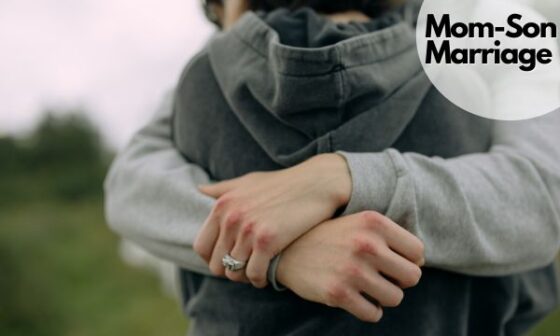Adoption, a noble act of providing a loving home to children in need, has been a topic of debate when it comes to gay couples seeking to adopt. While the world moves towards greater acceptance of diverse family structures, concerns persist about whether allowing same-sex couples to adopt is in the best interest of the child. In this article, we will delve into Why Gay Couples Should Not Be Allowed To Adopt.
Why Gay Couples Should Not Be Allowed To Adopt
Gay couples should not be allowed to adopt for so many reasons, one of them which is: At school, your child could experience bullying and mockery. According to data, kids raised by LGBT parents frequently experience higher rates of despair, drug misuse, and suicide than youth raised by straight parents.
Potential parents are discouraged just by these statistics. In today’s ever-evolving world, our understanding of family structures is expanding, embracing diversity and celebrating the uniqueness of each family. One significant stride toward inclusivity has been the recognition of LGBTQ+ couples as loving and capable parents.
The topic of LGBTQ+ adoption has been a subject of discussion and debate for many years, with passionate arguments on both sides. In this article, we aim to explore the positive aspects and the profound impact of LGBTQ+ couples opening their hearts and homes to adopt children. Join us as we delve into the benefits, challenges, and heartwarming stories that underscore why love truly knows no boundaries in the realm of adoption.
The Advantages of Gay Couple Adopting
Adoption by gay couples, like adoption by any loving and responsible individuals or couples, has several advantages, both for the children being adopted and for society as a whole. It’s important to note that numerous studies and research have shown that children raised by same-sex couples fare just as well as those raised by opposite-sex couples in terms of emotional, social, and psychological well-being. Here are some of the advantages of gay couples adopting:
1. Providing a Loving and Stable Home
Gay couples who choose to adopt typically provide a loving and stable environment for children. They often go through rigorous screening and approval processes to ensure they are capable of providing a safe and nurturing home.
2. Expanding the Pool of Potential Parents
Allowing gay couples to adopt increases the number of potential adoptive parents available to children in need of homes. This helps reduce the number of children in the foster care system and increases the likelihood of children finding permanent, loving families.
3. Offering Diverse Perspectives and Experiences
Children adopted by gay couples are exposed to diverse perspectives and experiences, which can enrich their understanding of different cultures, lifestyles, and identities. This diversity can help children develop open-mindedness and tolerance.
4. Fostering Acceptance and Inclusivity
Seeing gay couples adopt and raise children can help promote acceptance and inclusivity in society. It sends a positive message that families come in various forms, and what matters most is the love and care provided to children.
5. Challenging Stereotypes and Biases
Gay couples adopting challenges stereotypes and biases about LGBTQ+ individuals and families. This can contribute to a more inclusive and understanding society.
6. Encouraging Responsible Parenting
The desire to adopt and raise children often reflects a commitment to responsible parenting. Gay couples who choose to adopt typically invest significant time, effort, and resources into providing a supportive and loving environment for their children.
7. Supporting Children’s Well-being
Research has consistently shown that children raised by same-sex couples have similar outcomes in terms of emotional, social, and psychological well-being as those raised by opposite-sex couples. What matters most is the quality of parenting, not the gender or sexual orientation of the parents.
In summary, the advantages of gay couples adopting include providing loving homes, expanding the pool of potential parents for children in need, promoting diversity and acceptance, challenging stereotypes, and ultimately contributing to the well-being of adopted children and society as a whole.
Disadvantages of Gay Couples Adopting
It’s important to approach this question with sensitivity and an understanding that every family is unique, and the disadvantages of gay couples adopting can vary depending on individual circumstances, societal factors, and legal frameworks. Discrimination and bias against LGBTQ+ individuals and couples can contribute to challenges they may face when adopting. Here are some potential disadvantages that gay couples may encounter:
1. Discrimination and Prejudice
One of the most significant disadvantages is the potential for discrimination and prejudice from adoption agencies, birth parents, or even society in general. Some people may hold discriminatory beliefs and biases against LGBTQ+ individuals, which can affect the adoption process and create additional stress for the couple.
2. Limited Legal Protections
Depending on the jurisdiction, gay couples may have fewer legal protections when it comes to adoption, especially in countries or regions where LGBTQ+ rights are not fully recognized or protected. This can lead to uncertainties regarding custody and parental rights.
3. Barriers to International Adoption
Some countries may prohibit adoption by same-sex couples, making international adoption more challenging for gay couples who wish to adopt from these regions.
4. Access to Resources
Financial constraints, such as the cost of adoption and legal fees, can be a disadvantage for any potential adoptive parents, including gay couples. LGBTQ+ individuals may also have to navigate additional legal costs and challenges associated with adoption, depending on their location.
5. Social Stigma
Children adopted by gay couples may sometimes face social stigma or discrimination from peers, educators, or community members, which can affect their emotional well-being.
6. Lack of Representation
Children of gay couples may experience a lack of representation in media and society, which can make it challenging for them to relate to their own family structure and find role models.
7. Navigating Family Dynamics
Like any other adoptive or biological family, gay couples may face challenges in navigating family dynamics and relationships, including potential issues with extended family members who may not fully accept their relationship or family structure.
8. Complex Legal Processes
Adoption can involve complex legal processes, and gay couples may need to deal with additional legal hurdles, such as establishing parental rights or second-parent adoption in some cases.
9. Potential for Change in Laws
Laws regarding LGBTQ+ rights and adoption can change, which may impact the rights and protections of gay couples who have already adopted or are in the process of adopting. Staying informed about legal changes is essential.
It’s important to note that despite these potential disadvantages, many gay couples successfully adopt and provide loving, stable homes for children. Additionally, societal attitudes and legal protections for LGBTQ+ individuals and families have been evolving in many places, leading to improved adoption experiences and outcomes. Adoption agencies and support networks have also become more inclusive and aware of the unique needs of LGBTQ+ adoptive parents.
Traditional Family Values
The foundation of many societies is built on traditional family values, often centered around gender roles and heteronormativity. Advocates against same-sex adoption argue that introducing alternative family structures could erode these values, potentially leading to confusion and uncertainty among children about their roles and identities.
Child’s Well-being and Development
A significant concern raised against same-sex adoption revolves around the potential impact on a child’s development. Detractors worry that growing up in a household with same-sex parents could lead to psychological and social challenges. However, research on this topic is inconclusive, and many children raised by same-sex couples thrive just as well as those in traditional households.
Role Models and Identity
One of the concerns voiced is the availability of suitable role models for children raised by gay couples. Critics argue that children might struggle with their own gender identity and relationships due to a lack of diverse role models. However, supporters of same-sex adoption stress that nurturing a child’s individuality and providing an environment of acceptance can outweigh any potential challenges.
Social Stigma and Bullying
A worrisome point is the possibility of social stigma and bullying that children of same-sex couples might face. Critics claim that such children could be more vulnerable to teasing and ostracization. Nevertheless, proponents emphasize the importance of building a strong support network and fostering resilience in children to face societal challenges.
Religious and Cultural Beliefs
Religious and cultural beliefs play a significant role in shaping attitudes towards same-sex adoption. Opponents argue that allowing gay couples to adopt might clash with traditional religious teachings and cultural norms. However, many religious groups and societies are evolving to accommodate changing perspectives on family structures.
Lack of Gender Diversity
Detractors express concern over the potential lack of gender diversity in households with same-sex parents. They worry that children might not receive exposure to different gender perspectives. On the contrary, supporters emphasize that diversity extends beyond gender, and children can learn about different perspectives from a wide range of sources.
Alternatives to Adoption
Critics of same-sex adoption often suggest that gay couples should explore alternative means of building families, such as surrogacy or assisted reproductive technologies. However, these options might not align with every couple’s preferences, financial situation, or feasibility.
Legal and Ethical Considerations
The legal and ethical dimensions of same-sex adoption are complex. Critics argue that granting the right to adopt to gay couples might infringe upon personal freedoms and religious beliefs. However, advocates stress that equal rights and anti-discrimination laws should apply to all individuals, regardless of their sexual orientation.
Research on Outcomes
The available research on child outcomes in same-sex households is a point of contention. Critics claim that limited research and potential bias in existing studies make it difficult to draw accurate conclusions about the well-being of children raised by gay couples. However, supporters highlight that more comprehensive research is showing positive outcomes for these families.
Support Systems and Community
A critical factor in the well-being of any family, including those with same-sex parents, is a strong support system. Supporters of same-sex adoption emphasize the importance of building a robust LGBTQ+ community to provide emotional and social support for adoptive families.
Changing Societal Norms
Societal norms are evolving rapidly, and family structures are becoming more diverse. While critics might resist these changes, supporters argue that adapting to new norms reflects a progressive and inclusive society that values all types of families.
Empathy and Acceptance
At the heart of the debate lies the call for empathy and acceptance. Advocates urge a shift away from preconceived notions and biases, stressing the importance of prioritizing children’s well-being and happiness over outdated stigmas.
Counterarguments
It’s crucial to acknowledge counterarguments that favor same-sex adoption. Supporters of equal rights assert that discrimination based on sexual orientation goes against the principles of fairness and equality. They argue that children’s well-being should be the primary focus, and studies show that children raised by same-sex couples can thrive in loving environments.
Conclusion
The debate over whether gay couples should be allowed to adopt is a multifaceted issue that touches on traditional values, child development, and evolving societal norms. While concerns are raised about the potential challenges, it’s vital to approach this topic with an open mind and prioritize the well-being of the children involved. As society progresses, embracing diversity and supporting loving families—regardless of their composition—remains a cornerstone of building a more inclusive future.
FAQs
1. Are children raised by same-sex couples more likely to face identity issues? Research suggests that children raised by same-sex couples do not experience more identity issues than those in traditional households.
2. What are the legal rights of same-sex couples in adopting children? Legal rights vary by country and state, but many places now grant equal adoption rights to same-sex couples.
3. How can society better support children with same-sex parents against bullying? Education and awareness programs can help combat bullying, promoting empathy and understanding among peers.
4. Do religious institutions universally oppose same-sex adoption? No, many religious groups have embraced LGBTQ+ inclusivity and support same-sex adoption.
5. What is the most critical factor in a child’s development, regardless of their parents’ sexual orientation? The most critical factor is a loving and supportive family environment that fosters a child’s well-being and happiness.







